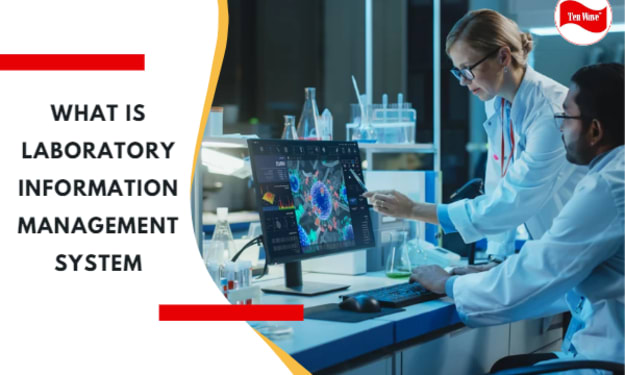Challenges While Implementing The Hospital Management System
ETHER - Best HMS software in India

Efficient management of hospital operations is crucial for delivering quality patient care and optimizing workflows. This has led to the widespread adoption of Hospital Management Systems (HMS), which are digital solutions designed to streamline administrative, clinical, and financial processes within healthcare facilities. While these systems promise numerous benefits, their implementation often comes with a set of challenges that healthcare institutions need to navigate effectively.
Table of Contents
- Introduction
- Choosing the Right HMS Solution
- Integration with Existing Systems
- Data Migration and Training
- Customization and Scalability
- Ensuring Data Security and Privacy
- Resistance to Change among Staff
- Cost Considerations
- Technical Support and Maintenance
- Regulatory Compliance
- Interoperability with External Partners
- User Experience and Interface Design
- Monitoring and Performance Evaluation
- Future-Proofing the HMS
- Conclusion
- FAQs
Introduction
The integration of technology into healthcare practices has revolutionized patient care and operational efficiency. Hospital Management Systems (HMS) has emerged as a cornerstone of this transformation, promising streamlined processes and enhanced decision-making. However, the journey towards implementing an effective HMS is riddled with challenges that require careful consideration and planning.
Choosing the Right HMS Solution
Selecting the most suitable HMS for a healthcare facility is a critical decision that requires a thorough evaluation of the institution's specific needs, workflows, and goals. It's essential to find a solution that aligns with the hospital's unique requirements to ensure seamless integration and optimal outcomes.
Integration with Existing Systems
Many healthcare institutions already have legacy systems in place. Ensuring the new HMS integrates seamlessly with these systems while preserving data integrity is a complex undertaking. Compatibility issues and data transfer complexities can arise, necessitating meticulous planning and expertise.
Data Migration and Training
Migrating existing patient data to the new system is a delicate process that demands accuracy and data security. Additionally, training staff to effectively utilize the HMS is paramount to realizing its full potential and avoiding disruptions in daily operations.
Customization and Scalability
Each hospital operates differently, and a one-size-fits-all approach may not suffice. Customization of the HMS to cater to specific processes and future scalability is essential. Balancing customization with standardization is a delicate act.
Ensuring Data Security and Privacy
The sensitive nature of patient data underscores the need for robust security measures. HMS implementation requires stringent data protection protocols to safeguard against breaches and unauthorized access.
Resistance to Change among Staff
Introducing a new technological system often faces resistance from staff accustomed to traditional methods. Clear communication, training, and highlighting the benefits of the HMS are crucial in overcoming this challenge.
Cost Considerations
While the long-term benefits are substantial, the initial costs of HMS implementation can be significant. Budget constraints and ensuring a favourable return on investment are key factors that demand careful financial planning.
Technical Support and Maintenance
Continuous technical support and system maintenance are essential to address glitches, updates and ensure uninterrupted operations. Establishing a reliable support framework is imperative.
Regulatory Compliance
Healthcare is subject to strict regulations to ensure patient safety and privacy. Ensuring that the HMS complies with these regulations adds a layer of complexity to the implementation process.
Interoperability with External Partners
Hospitals often collaborate with external laboratories, pharmacies, and other healthcare providers. The HMS must facilitate seamless data exchange and interoperability for effective patient care across various entities.
User Experience and Interface Design
An intuitive user interface is vital for user acceptance and efficient utilization of the HMS. Designing a user-friendly interface that aligns with healthcare professionals' needs is crucial.
Monitoring and Performance Evaluation
Regularly monitoring the HMS's performance and evaluating its impact on hospital operations is essential for identifying areas of improvement and ensuring optimal functionality.
Future-Proofing the HMS
The healthcare industry is dynamic, and the HMS must be adaptable to future technological advancements and changing operational needs. Future-proofing ensures the system's longevity and relevance.
Conclusion
Implementing a Hospital Management System is a transformative journey that holds the promise of enhanced patient care and streamlined operations. However, the challenges outlined above underscore the need for meticulous planning, clear communication, and collaboration among stakeholders to overcome obstacles and harness the full potential of HMS.
FAQs
1. What is a Hospital Management System?
A Hospital Management System (HMS) is a digital solution designed to streamline administrative, clinical, and financial processes within healthcare facilities, enhancing efficiency and patient care.
2. How does data migration impact HMS implementation?
Data migration involves transferring existing patient data to the new system, which requires careful planning to ensure accuracy, data security, and minimal disruptions.
3. Why is staff resistance a challenge?
Introducing new technology may face resistance from staff accustomed to traditional methods. Overcoming this challenge requires effective communication, training, and highlighting the benefits of the HMS.
4. What are the potential costs associated with HMS implementation?
HMS implementation involves initial costs such as software acquisition, hardware, training, and ongoing maintenance. However, the long-term benefits often outweigh the initial investment.
5. How can hospitals ensure regulatory compliance when implementing an HMS?
Ensuring regulatory compliance involves aligning the HMS with healthcare regulations, data privacy laws, and industry standards while implementing robust data security measures.
About the Creator
Harish Rawat
I am a passionate digital marketer since 2019 || 🔍 SEO Expert || 🎯PPC Specialist - Google Ads, Facebook Ads || Ecommerce SEO Expert. I help firms to grow their online presence & drive traffic through effective digital marketing strategies






Comments
There are no comments for this story
Be the first to respond and start the conversation.